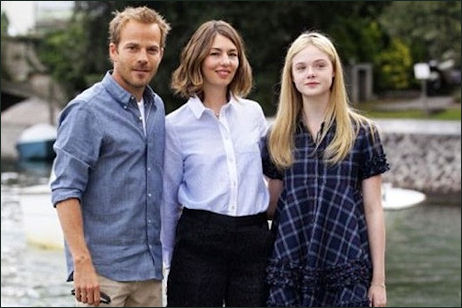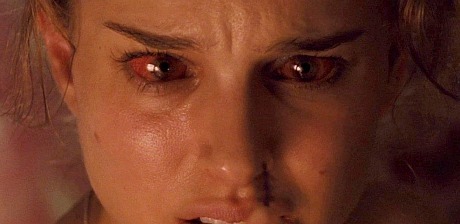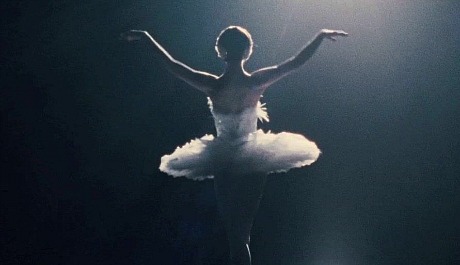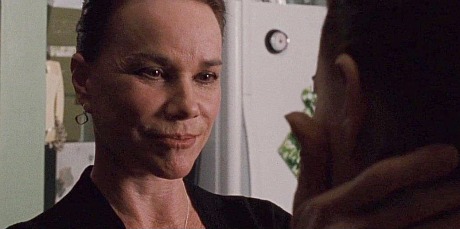The National Board of Review has given its Best Picture trophy to David Fincher‘s The Social Network. Plus awards to Fincher for Best Director and to Jesse Eisenberg for Best Actor. Nice! I’d like to think it’s an omen of some kind, and maybe it is. An NBR seal of approval doesn’t mean very much in the overall scheme — let’s face it. But wasn’t everyone predicting that The King’s Speech had this in the bag? (Tapped out in back of a cab on my way to JFK.)
Day: December 2, 2010
Duty
It’s 12:49 pm, and I have to be at JFK in three hours to catch a 5:45 pm Royal Air Maroq flight to Casablanca, and then a short flight to Marrakech. I’ll be at the 10th annual Marrakech Film Festival for six days and then back home. I’m seized with dread about leaving. Why am I doing this? Way behind on so many movies and stories and things to get to, trying to keep up, haven’t taken the garbage out, have clothes to clean, bills to pay. My stomach is in knots.

At least it’s warmish over there — 50s, 60s. Mid to high 40s in the evening.
Cruel Truth
I got into a little mudball fight with some online columnists late this morning, and I ended my contribution by saying that The King’s Speech is essentially Driving Miss Daisy in a British royal realm — a story about an unlikely commoner enriching the life of a person of wealth, property and social standing. Geoffrey Rush is Morgan Freeman, and Colin Firth is Jessica Tandy.
I basically said that as good as it is (and as much as I personally enjoyed it), Tom Hooper‘s The King’s Speech winning the Best Picture Oscar will be seen in some under-40 quarters as a kind of generational nail in the coffin of the Academy and the whole Oscar tradition, for that matter. It’ll be seen as a Triumph of the Farts.
The Oscar generation gap is alive and raging. The younger crowd loves The Social Network and Black Swan and the doddering elders aren’t so hot on either of these, and the old farts love The King’s Speech and The Kids Are All Right. (Kids is a relatively fresh-feeling thing, but The King’s Speech could have been made 20 or 30 years ago.) Giving the Best Picture Oscar to The Kings’ Speech will be seen as a huge metaphorical backslide…a triumph of a bland sensibility in the form of a very well-made, entirely respectable, very well acted film that’s about upholding tradition and manning up and doing what’s required….WOW, HOW EXCITING!
A Little Gab
I was somewhere between charmed and delighted when it hit me that Sofia Coppola‘s Somewhere (12.22) is a fairly close facsimile of an early ’60s Michelangelo Antonioni film. It’s not about imitation, but the unhurried meditative mood is striking, intriguing. For this and other reasons, I fell right into Somewhere‘s game. I think it signifies a huge breakthrough for Coppola, regardless who agrees or disagrees or how many Average Joes pay to see this Focus Features release.

Somewhere director-writer Sofia Coppola with Stephen Dorff and Elle Fanning at last September’s Venice Film Festival.
So I leapt at the chance to speak with Coppola last night, even though it meant hanging out in the apartment at 8:30 pm and having to blow off the premiere of All Good Things.
Somewhere is about a form of spiritual depletion — a kind of nothingness not unknown in wealthy movie-star realms. It’s not the same flatline syndrome that afflicted Antonioni’s characters in L’Avventura, L’Eclisse, La Notte and Blow-Up, but it’s in the same general ballpark. You can sense a subtle poisoning in the air. An affluent lethargy of some kind. A downswirl vibe. I love that Coppola refuses to spell it out or give it a name.
Nobody in Coppola’s league has had the vision or the guts to make a film like this, a film in which the main character, a rich but starting-to-fade Hollywood actor named Johnny Marco (Stephen Dorff), does very little and says even less as he drives his black sports car around and resides at West Hollywood’s Chateau Marmont and gets laid a lot and basically just…plotzes. Very little happens, but there’s a whole lotta stuff going on beneath.
Okay, something does happen. Johnny’s 11 year-old daughter (Elle Fanning) is dropped off at the hotel by her mom for whatever reason, and Johnny is asked to take care of her for a couple of weeks (or at least more than two or three days). Nobody says anything, no speeches are spoken, but bit by bit the self-absorbed Johnny begins to revel in the mood between himself and his daughter, and you can sense a kind of opening up beginning to happen. But it never goes beyond that. Nobody declares or demonstrates anything. Not overtly, I mean.
Our conversation was okay. I could hear Sofia, but not all that well, frankly. I think the mp3 recorder has trouble as well. She said something about being cool with meeting in Manhattan in a week or so. She and her two children and her musician-boyfriend Thomas Mars lived in Paris for three or four years (longer?), but they’re in New York these days. I sound like a kiss-ass at times, but that tone just slips in when I’m talking about a film I really like.
Swans and Fables
I’m already feeling perplexed…okay, pissed off…by certain critics who are questioning the mad theatrical flamboyance and fatalistic delirium of Darren Aronofsky‘s Black Swan (Fox Searchlight, 12.3), and their particular focus on the increasingly agitated mood-quakes that torture Natalie Portman‘s ballet dancer character, Nina Sayers.

This was Aronofsky’s intention, guys. It’s the idea. The film and the famous ballet it’s half based upon are supposed to be seen as intertwined and flowing into each other. It’s a psychological disturbance drama as myth and vice-versa…right? Mixed in with several dabs of The Red Shoes and laced with Repulsion, etc. Not hard to figure.
But it is, apparently. Marshall Fine and EW‘s Owen Gleiberman have complained about the nutso stuff. The hallucinatory spells and fable-like madness spasms are a bit much for them. “Why didn’t Aronofsky dial it down?,” they’re basically saying. “Why didn’t he give us…you know, a somewhat calmer, more psychologically intimate, older-guy version of Black Swan without all the emotional leaps and delusions and shattered glass?
“At some point, [Aronofsky’s] horror-movie shocks turn a little silly,” Fine writes. “His choices don’t ramp up the stakes but, too often, undermine them…[he] defies you to take the ride seriously.” Slant‘s Ed Gonzalez has written that “the overall effect is ostentatiously calculated, ill-fitting, and emotionally aloof.”
I know Fine and Gleiberman, and I know they went to college and generally don’t miss a trick so I don’t get it. The backdrop of Black Swan concerns preparations for a New York City Ballet production of Swan Lake, and is obviously intended to be a kind of plot-mirror of Peter Tchaikovsky‘s legendary Russian ballet, and a tonal echo of it. Gonzalez, at least, considers at the end of his review that “perhaps Black Swan, like Swan Lake, is meant to be seen itself as an opera, a fusion of synergic sound and movement — albeit a very filmic one.”

Boiled down, Swan Lake is about an evil sorcerer who’s transformed several young girls into swans, and their parents’ grief has formed a lake of tears — i.e., Swan Lake. The principal figure in this realm is Odette, the Swan Queen. The curse afflicting Odette can only be broken if a man vows undying love for her. A young prince tries to save her, but he and Odette achieve a release only in death — they jump into the lake and, having drowned, rise up to the heavens.
The first lines spoken by Vincent Cassell‘s ballet-director character, Thomas, in Black Swan recount the Swan Lake plot, ending with a line that the Swan Queen “finds release through death”…or words to that effect.
Cassell’s Thomas — hello? — is the evil sorcerer who turns Portman’s Nina into the Swan Queen. Portman’s highly neurotic stage mom, played by Barbara Hershey, has been crying tears of frustration for years over having failed to make it as a ballet dancer in her youth, and it is her lake that Portman’s Nina is clearly drowning in. It’s obvious what’s in the cards. Mila Kunis‘s Lily character is the scheming Black Swan. Winona Ryder‘s Beth Macyntire character, an older ballet dancer bitter about retiring, is referred to in the IMDB credits as “the dying queen.” There’s no great romance or young prince in Black Swan — it is strictly about Nina vs. Lily vs. her mother vs. Thomas — but the handsome Benjamin Millepied plays a young ballet dancer who could be the prince if Aronofsky had wanted to to go in that direction.
It just seems so clear to me, so unmistakable. Black Swan is supposed to affect you like the original Russian folk tale inspired the original authors of Swan Lake. It’s supposed to be fanciful, passionate, wacko, extreme, imaginary, loony. It wants to get into your blood.

Fire The Writer
If the latest fatal turn in the Ronni Chasen murder investigation had been inserted into a screenplay about Chasen’s bizarre death, it would be dismissed as poor plotting — a mystifying, incomprehensible occurence that adds nothing and leads nowhere.

TheWrap and the L.A. Times are reporting that late yesterday afternoon an ex-convict transient named “Harold” was approached at a transient hotel (i.e., the Harvey Apartments on the 5600 block of Santa Monica Blvd.) by Beverly Hills detectives as a “person of interest” in the Chasen killing. (In the parlance of Zodiac, the cops “liked” him — i.e., regarded him as a possible suspect.)
And then what happened? Harold “backed away, pulled out a handgun and shot himself” to death. Rewrite!
It gets worse or better, depending on your perspective.
L.A. Times reporter Abby Sewell spoke to a guy named Brandon Harrison, a “neighbor” of Harold’s who knew him slightly and described him as a “very strange” ex-convict who’d done time over drugs and weapons charges. Sewell reports that Harold “told” Harrison “several times [that] ‘If it ever came down to me going back to prison, I would die first.'” The inference is that Harold, apparently convinced that the bulls were going to take him back to jail for something or other, made good on his pledge.
Sewell further reports that Harold told Brandon Harrison “he was supposed to be getting $10,000, at one point saying it was for a job he did and on another occasion saying it was from a lawsuit.”
That sounds like b.s., of course. Nobody pays losers living in East Hollywood transient hotels sizable sums to do anything. But of course, right away your mind leaps to the obvious implication and/or nonsensical conclusion, which is that somebody may have paid Harold ten grand to shoot Ronni Chasen. This is awful, awful writing. It’s beyond ridiculous. It’s like something out of Cop and a Half, the 1993 Burt Reynolds flick.
Here’s some more bad writing. As Harold is dying on the floor from the gunshot wound, one of the detectives (i.e., the one not calling for an ambulance) crouches beside him and says, “Harold! For God’s sake, Harold…did you have something to do with shooting a woman on Sunset Blvd. a couple of weeks ago? C’mon, Harold…spit it out. Don’t die with a lie…cleanse yourself…tell the truth.”
In Tony Gilroy‘s Michael Clayton, George Clooney tells Sydney Pollack that Tom Wilkinson‘s apparent suicide is a big “why?,” that it makes no sense at all. Pollack’s reply is borderline irate: “Why? Because people are fucking incomprehensible…that’s why.”
